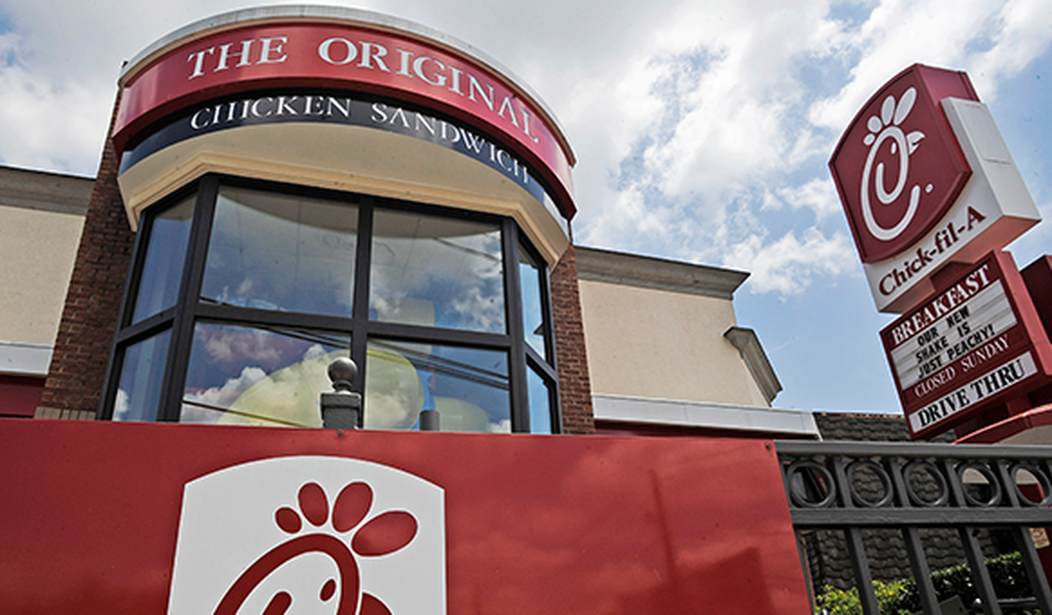One of the consequences of the longevity of the coronavirus pandemic is disruptions in supply chains. At the beginning of the pandemic, there were shortages of everyday necessities like toilet paper and cleaning products. As time went on, food shortages became a problem for some regions of the country. Now the supply chain is being blamed for a shortage of Chick-fil-A sauce.
The announcement by Chick-fil-A today that many of its 2,600 restaurants will be implementing a limit of one sauce packet per entree is likely causing some heartburn for its loyal customers. Chick-fil-A patrons love its special sauce. Fortunately, the company is not experiencing a shortage of chicken.
“Due to industry-wide supply chain disruptions, some Chick-fil-A restaurants are experiencing a shortage of select items, like sauces. We are actively working to make adjustments to solve this issue quickly and apologize to our Guests for any inconvenience,” a Chick-fil-A spokesperson said.
Sauces at Chick-fil-A will be limited to one sauce per entree, two sauces per meal, and three sauces per 30-count nuggets. The company is softening the blow by reminding customers that they can purchase special sauces online and at certain retail outlets. There is a banner up on its website and app with a short message. In other words, there is no need to panic hoard the sauces.
Customers can continue to purchase 8 oz. bottles of Chick-fil-A sauce in retail stores like Walmart, Target, Publix and Kroger. Their sauces — Chick-fil-A Sauce, Barbeque, Honey Mustard, Garden Herb Ranch and Polynesian — are also available for purchase on the Chick-fil-A app.
One thing is certain – Chick-fil-A’s reputation as a very well-run company is legit. Go through the drive-thru line any day of the week and you will experience quick service and friendly, polite servers. This shortage will likely be resolved as quickly as possible.
Shortages have been popping up as the country begins to re-open, due to interrupted supply chains. The problems include shipping, demand, and all the other levers of the global economy. There is a shortage of goods across the board, not just in the food industry. Besides chicken and ketchup (!) shortages, there are also shortages of lumber, chlorine, metals, and now even a shortage of gas supplies in some east coast states due to a hack attack on a gas pipeline company.
Companies are struggling to find workers, many of whom are not in a rush to return to a job when they can stay home and receive extended unemployment benefits. The economy is trying to come back but aspects like supply distribution is hampered by an inadequate supply of truck drivers and logistical experts. Last Friday’s horrible jobs report didn’t exactly inspire confidence in immediate recovery.
The results paint a tough picture for transportation and logistics, which continues to roar back from the pandemic lows of a year ago but is struggling to find enough truck drivers and warehouse workers to meet surging consumer demand for everything from household goods to apparel and recreation items. The government’s preliminary jobs data for April showed that transportation and warehousing employment declined by 74,000 jobs during the month, following gains in February and March.
Mark Allen, president and CEO of the International Foodservice Distributors Association (IFDA), said the issue is especially acute in the food industry, which has bounced back quickly this year as pandemic restrictions have eased and Covid-19 vaccinations have ramped up. IFDA represents distributors that sell food and related supplies to restaurants, schools, hospitals, and other institutions.
“I don’t think anyone expected for our industry to come back as quickly as it did,” Allen said, pointing to a recent conversation he had with three large food-industry distributors that, combined, told Allen they need to hire 8,000 truck drivers and warehouse employees to meet demand. He said the industry has been feeling the pinch for drivers since the early part of the year, but didn’t see demand heating up on the warehouse side until mid- to late March.
There is hope that workers will begin to come back to work and job vacancies will be more quickly filled as some states move to limit or cut off extended unemployment benefits. Some states are offering return-to-work bonuses instead of more benefits.
The shortage of packets of sauce was felt earlier this year in the ketchup industry. When the CDC and state and local governments began shutting down inside dining as the pandemic began to spread, takeout orders rapidly increased. People began either having food delivered or picking up their food orders curbside. Customers wanted condiments with their orders, including a very popular condiment – ketchup. Demand for ketchup went up, prices went up, and suddenly there was less supply. The biggest ketchup producer, Heinz, has announced a 25% increase in production. That increase will bring production up to 12 billion ketchup packets a year.
Let’s hope Chick-fil-A ends the sauce restrictions soon. In the meantime, customers can buy their own and get by until the short ends.








Join the conversation as a VIP Member